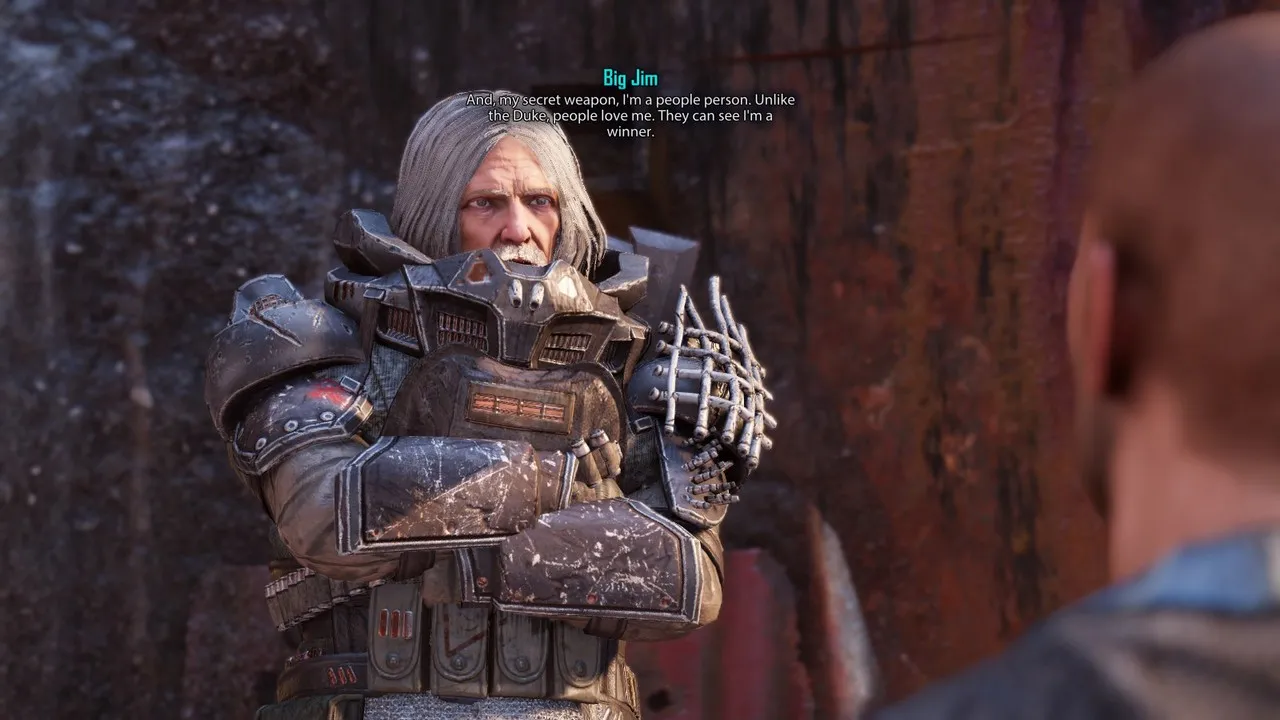
ELEX: A Eurojank RPG with Diamond in the Rough Potential
Contents
Eurojank RPG. It’s a niche term, whispered among fans of Western RPGs. It evokes images of games from Central, Western, and Eastern Europe, often featuring a third-person perspective, a modest scope, and a certain…roughness. If one word could sum it up, it would be “janky.” Think Divinity II: Ego Draconis or the first Witcher game – titles that embody this distinct subgenre. These games often become cult classics, initially overlooked by the masses but eventually garnering a dedicated, if smaller, following. Pyranha Bytes’ Gothic series is a prime example. Given their track record since losing the Gothic IP, expectations for ELEX were understandably tempered, especially considering its release amidst a slew of AAA RPGs.
A Rough Start
 ELEX – Open World“Janky” is the operative word when discussing ELEX. Even in 2001, Gothic faced criticism for its dated controls. This clunkiness has become Pyranha Bytes’ trademark, arguably part of their games’ charm. While their smaller team (under 50 for ELEX) explains some of the lack of polish, the game’s technical shortcomings significantly impact the experience.
ELEX – Open World“Janky” is the operative word when discussing ELEX. Even in 2001, Gothic faced criticism for its dated controls. This clunkiness has become Pyranha Bytes’ trademark, arguably part of their games’ charm. While their smaller team (under 50 for ELEX) explains some of the lack of polish, the game’s technical shortcomings significantly impact the experience.
Visuals and Technical Issues
The art direction is…eclectic, to say the least. A comet impact has scattered the transformative substance Elex across the planet, creating a bizarrely diverse landscape. Edan boasts Skyrim-esque fantasy forests and mountains, Tavar resembles the post-apocalyptic wasteland of Fallout: New Vegas, and the Ignadon fortress Hort has a basic sci-fi aesthetic. Surprisingly, this mishmash works, thanks to clever placement of these disparate elements. The Domed City, a melting pot of all three factions, exemplifies this, with rusty shacks nestled beside futuristic tech within ancient walls. Pyranha Bytes’ handcrafted approach results in a strangely vibrant world.
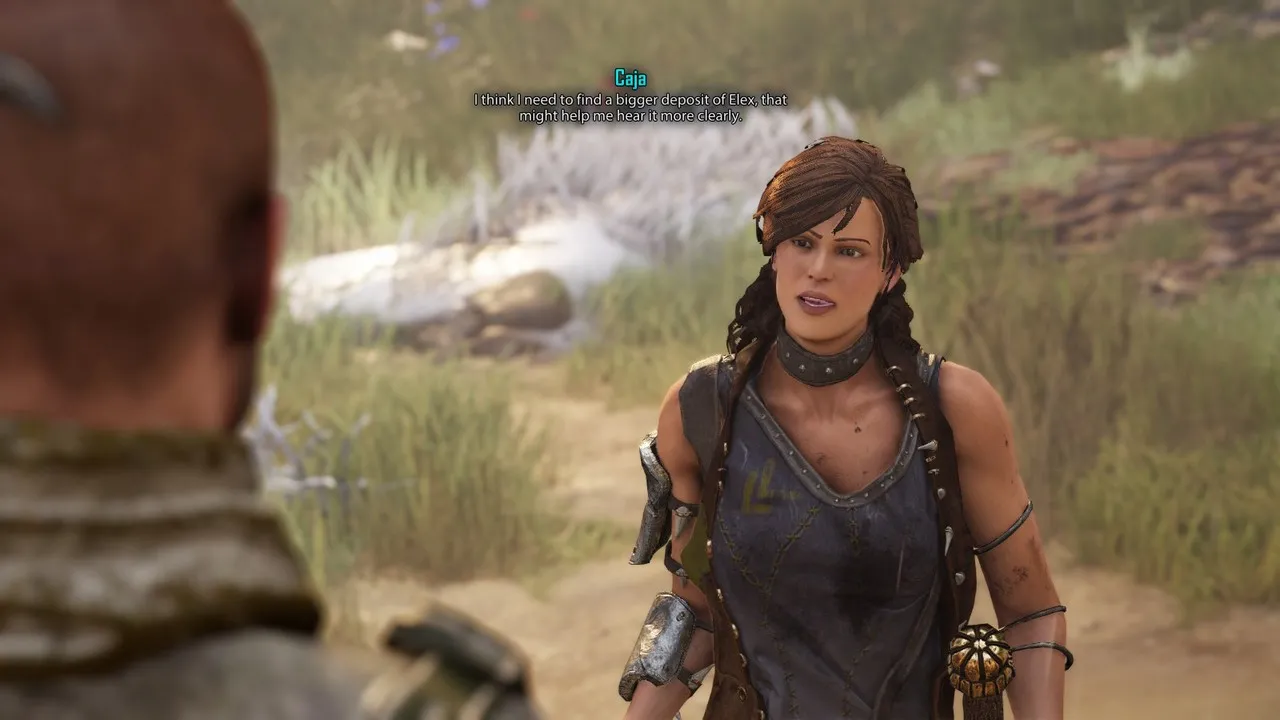 ELEX – Diverse EnvironmentsHowever, this visual creativity comes at a cost. The graphics are mediocre, even by PS3/Xbox 360 standards. Despite decent lighting and environmental effects, the angular, repetitive models, low-resolution textures, and stiff, repeated character animations are glaring. The female character models, in particular, seem to share a single face.
ELEX – Diverse EnvironmentsHowever, this visual creativity comes at a cost. The graphics are mediocre, even by PS3/Xbox 360 standards. Despite decent lighting and environmental effects, the angular, repetitive models, low-resolution textures, and stiff, repeated character animations are glaring. The female character models, in particular, seem to share a single face.
This technological backwardness extends beyond the visuals. The voice acting is inconsistent, the sound design is a mix of jarring cacophony and unsettling silence, and the inventory system is archaically presented as a long, unwieldy list. The trading interface inexplicably lumps all non-armor and weapon items into a single category, making the simple act of selling junk unnecessarily cumbersome. Even after 16 years, Pyranha Bytes still struggles with character movement. Protagonist Jax moves with the grace of a multi-ton Orc attempting ballet. The combat system, inspired by Dark Souls with a stamina bar and light, heavy, and charged attacks, suffers as a result. While the combat itself feels weighty and impactful, the terrible lock-on system and erratic hitboxes make it a chore. “One versus many” encounters are best avoided, regardless of your character’s strength, due to the unresponsive controls and frustratingly slow target switching. The hitboxes often seem to have a mind of their own, registering damage even when clearly dodging. To add insult to injury, combat can sometimes trigger with NPCs immediately after dialogue, with the NPC getting a free hit before you can react.
A Narrative with Promise
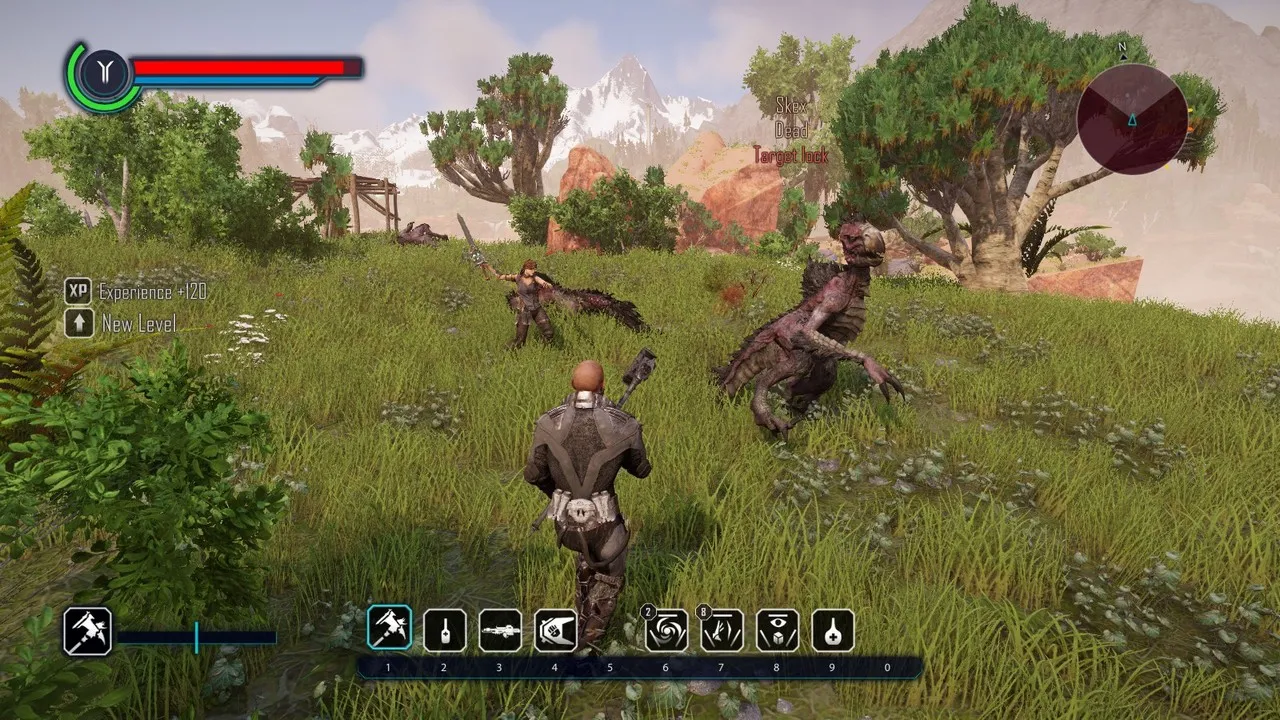 ELEX – Character Interaction tells the story of Jax, a high-ranking Alb commander on a secret mission to conquer Magalan. Betrayed by his own kind, he embarks on a journey of discovery and revenge. The world is divided between Berserkers (mana-wielding Viking cosplayers), Outlaws (Mad Max enthusiasts), and Clerics (zealous Space Marine devotees with less impressive armor). The narrative, while initially generic, reveals depth through its interconnected quests. For example, gaining the support of the Berserker leader requires investigating a murder in Edan, leading to unexpected revelations.
ELEX – Character Interaction tells the story of Jax, a high-ranking Alb commander on a secret mission to conquer Magalan. Betrayed by his own kind, he embarks on a journey of discovery and revenge. The world is divided between Berserkers (mana-wielding Viking cosplayers), Outlaws (Mad Max enthusiasts), and Clerics (zealous Space Marine devotees with less impressive armor). The narrative, while initially generic, reveals depth through its interconnected quests. For example, gaining the support of the Berserker leader requires investigating a murder in Edan, leading to unexpected revelations.
Quest Design and Gameplay
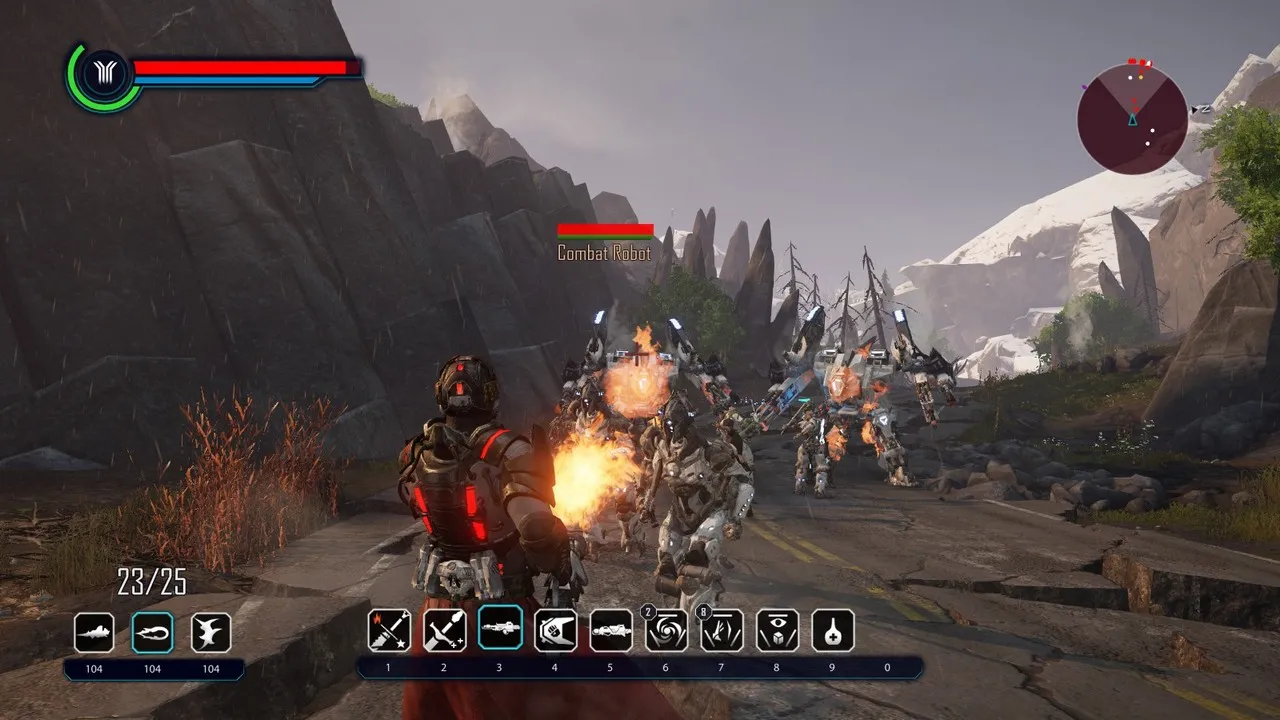 ELEX – Exploration shines in its quest design. Main and side quests intertwine seamlessly, creating a ripple effect. The Abessa conflict, determining the fate of The Domed City, is a standout, allowing you to save the city through cooperation or indirectly destroy it by aiding rebels. The game rarely adheres to the “choice A leads to outcome B” formula. The open world encourages emergent gameplay, unrestricted by traditional RPG limitations like experience points or level requirements. Combat is often avoidable, as you’re rarely strong enough to face enemies head-on without proper gear. Your jetpack allows for vertical exploration, and dialogue (or skill checks) can resolve most situations. Fast travel and quest markers are convenient but don’t trivialize the experience. The somewhat lacking AI can even be exploited for amusement, though luring Mutants into Outlaw territory might have unintended consequences.
ELEX – Exploration shines in its quest design. Main and side quests intertwine seamlessly, creating a ripple effect. The Abessa conflict, determining the fate of The Domed City, is a standout, allowing you to save the city through cooperation or indirectly destroy it by aiding rebels. The game rarely adheres to the “choice A leads to outcome B” formula. The open world encourages emergent gameplay, unrestricted by traditional RPG limitations like experience points or level requirements. Combat is often avoidable, as you’re rarely strong enough to face enemies head-on without proper gear. Your jetpack allows for vertical exploration, and dialogue (or skill checks) can resolve most situations. Fast travel and quest markers are convenient but don’t trivialize the experience. The somewhat lacking AI can even be exploited for amusement, though luring Mutants into Outlaw territory might have unintended consequences.
 ELEX – Factions
ELEX – Factions
Conclusion
ELEX is a true eurojank RPG, with all the associated baggage. Its technical flaws and clunky mechanics can be frustrating. However, its ambitious world design, intriguing narrative, and interconnected quests offer a unique experience. It’s a diamond in the rough, flawed but ultimately rewarding for those willing to overlook its imperfections.
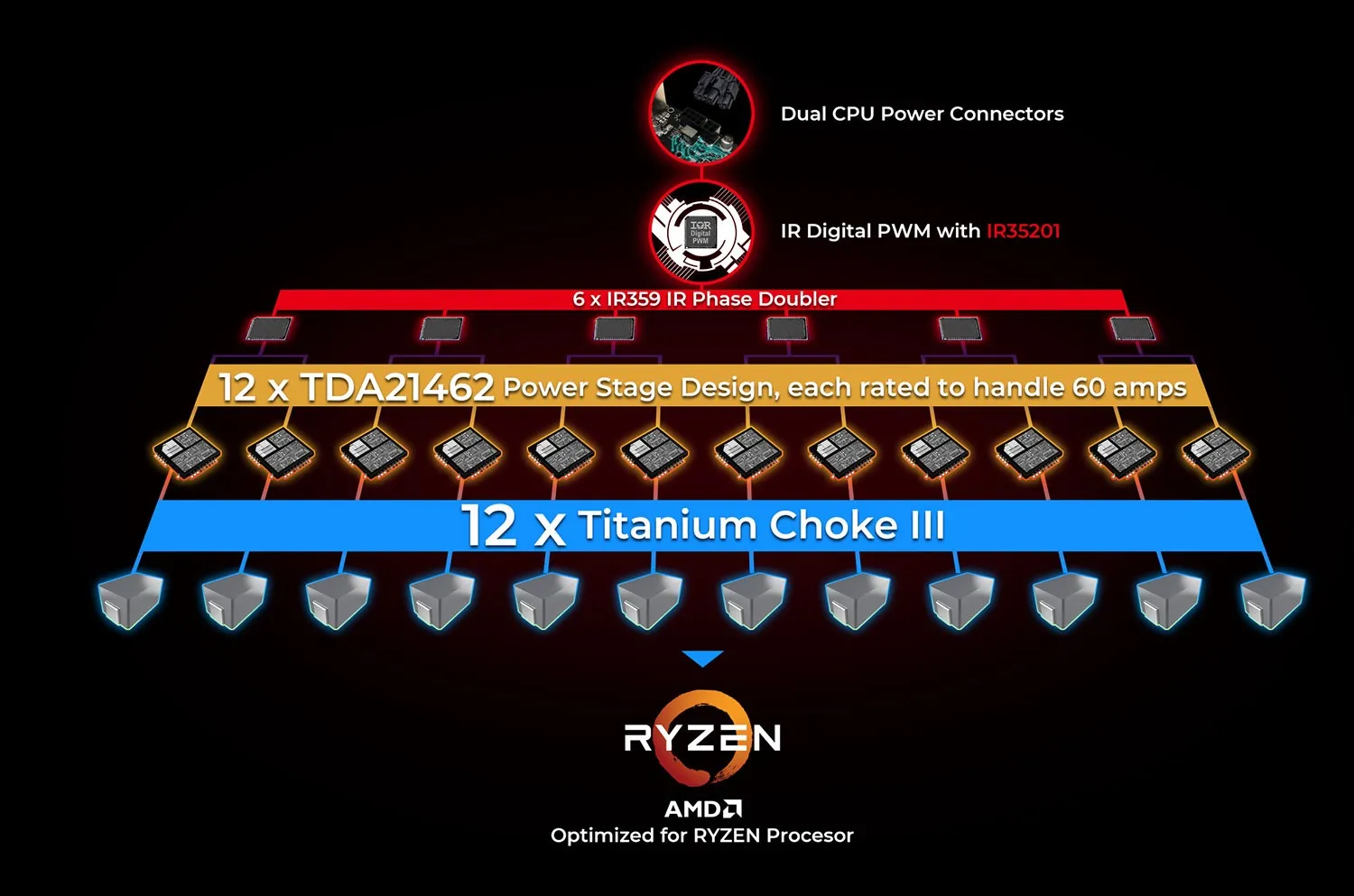


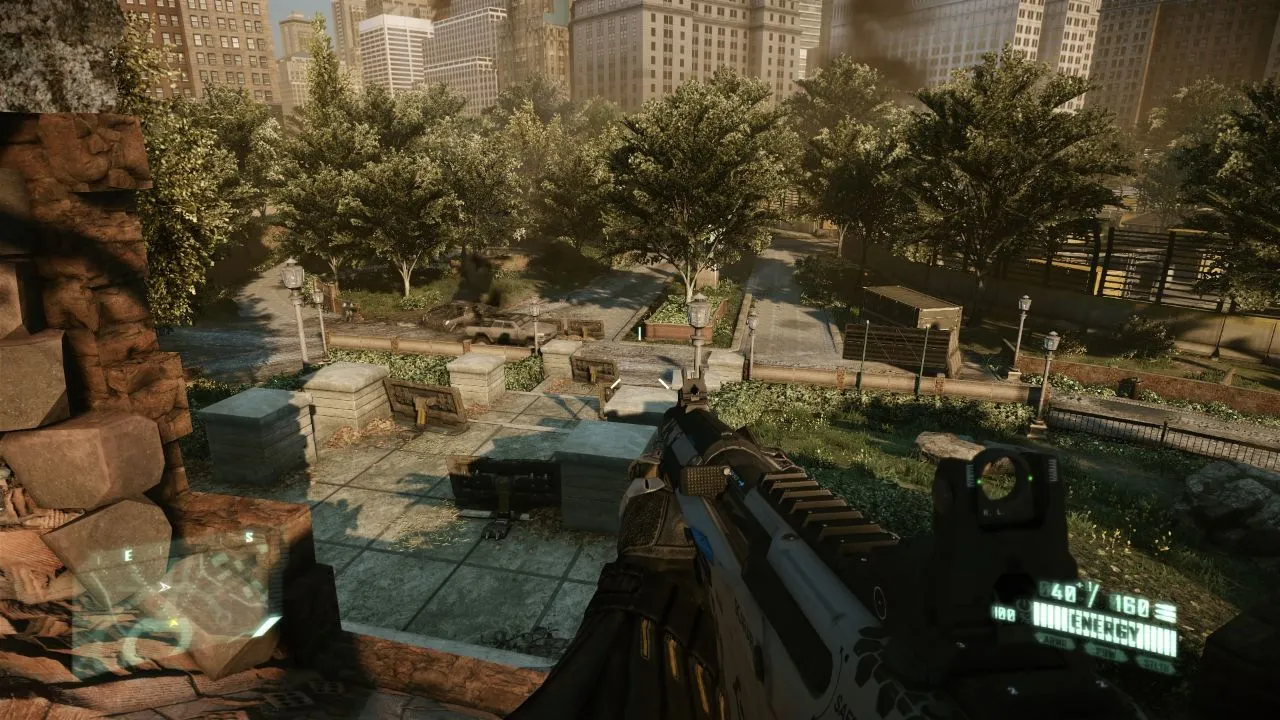
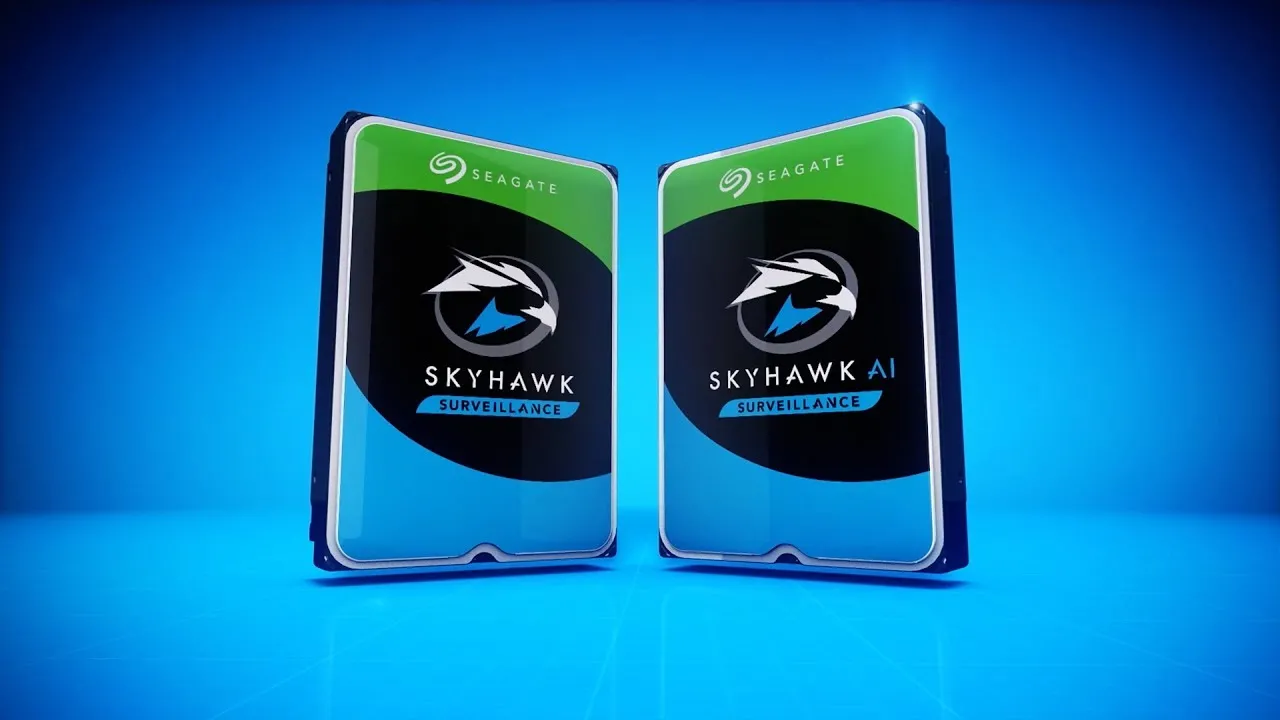
Comments (0)